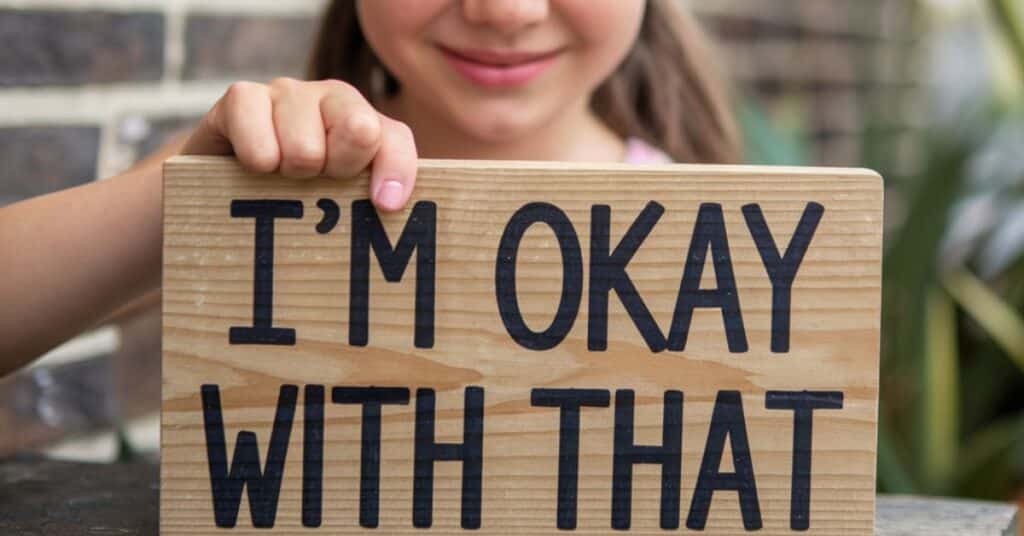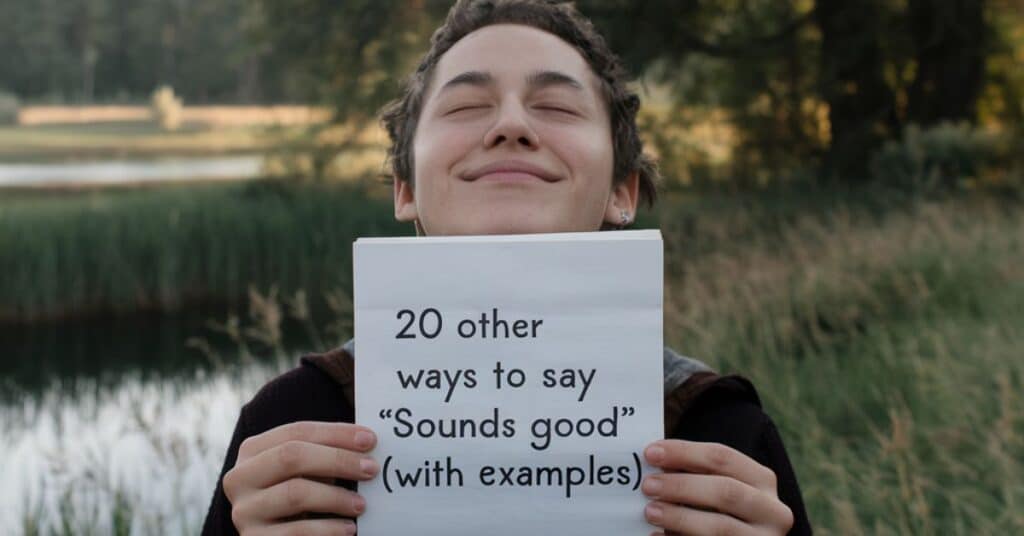In daily conversations, “Sounds good” is a common way to agree or express approval. But, if you want to switch things up or sound more professional, there are plenty of alternatives.
Below are 20 other ways to say “Sounds good,” with examples to help you in various contexts.
1. Works for me
If you’re comfortable with an idea or plan, this is a great alternative.
Example:
“How about we meet at 10 AM tomorrow?”
“Works for me!”
2. I’m on board
This phrase is ideal for showing that you support a plan or suggestion.
Example:
“We’re planning to redesign the homepage next week.”
“I’m on board with that!”
3. That’s acceptable
A more formal way to agree without sounding overly enthusiastic.
Example:
“We’ll send over the documents by Friday.”
“That’s acceptable.”
4. I’m okay with that

Use this phrase when you’re fine with a suggestion or idea.
Example:
“Can we push the deadline by a day?”
“I’m okay with that.”
5. That’ll do
Perfect when the suggestion meets your needs, though it may not be perfect.
Example:
“Let’s go with the second design option.”
“That’ll do.”
6. Fine by me
A casual yet agreeable response that’s great for informal situations.
Example:
“Shall we order pizza for dinner?”
“Fine by me!”
7. Agreed
If you want to keep things simple, “Agreed” is short and straight to the point.
Example:
“We should finalize the report today.”
“Agreed.”
8. Sounds like a plan
This phrase adds a sense of readiness or organization to your agreement.
Example:
“Let’s meet after lunch to go over the presentation.”
“Sounds like a plan!”
9. That works
Use this when a suggestion fits well with your needs or schedule.
Example:
“How about we switch the meeting to 2 PM?”
“That works.”
10. I’m down
An informal way to show enthusiasm and willingness to participate.
Example:
“Do you want to join us for the hike this weekend?”
“I’m down!”
11. I can live with that
Use this when you’re willing to accept something even if it’s not your first choice.
Example:
“We’ll split the tasks evenly.”
“I can live with that.”
12. Sure thing
A friendly, agreeable phrase that works well in casual conversations.
Example:
“Could you send me the file by the end of the day?”
“Sure thing!”
13. Absolutely
This one adds enthusiasm and confidence to your agreement.
Example:
“Do you agree with the changes?”
“Absolutely!”
14. No problem
Great for letting someone know you’re okay with what they’ve suggested.
Example:
“I’ll need the report by 5 PM.”
“No problem!”
ALSO READ THIS ARTICLE:20 Other Ways to Say “According To” (With Examples)
15. All right
Casual but agreeable, “All right” is useful for day-to-day interactions.
Example:
“Can you confirm the appointment?”
“All right.”
16. Fair enough
Use this to agree with a reasonable suggestion or compromise.
Example:
“Let’s divide the project equally.”
“Fair enough.”
17. I’m with you
This phrase conveys agreement and support for a plan or idea.
Example:
“We should update the software this weekend.”
“I’m with you on that!”
18. Exactly
Short and strong, “Exactly” shows total agreement.
Example:
“The current layout is confusing; we need to simplify it.”
“Exactly!”
19. I’m all in
Use this to express full support and enthusiasm for something.
Example:
“Let’s get started on this new project.”
“I’m all in!”
20. Sounds like a winner
A positive, upbeat way to agree, especially when you like the suggestion.
Example:
“We could go to the beach for the weekend.”
“Sounds like a winner!”
Why It’s Important to Vary Your Responses
Using alternatives to “Sounds good” can enhance your communication by adding variety, showing enthusiasm, or adjusting the tone depending on the situation. Whether you’re in a casual chat with friends or discussing a project at work, having different phrases at your disposal helps you communicate more effectively.
Frequently Asked Questions
When should I use formal alternatives to “Sounds good”?
Use formal alternatives like “That’s acceptable” or “Agreed” in professional settings, such as business meetings or email correspondence, where a more polished tone is required. These phrases demonstrate professionalism and help maintain clear, respectful communication.
Are there any casual alternatives for “Sounds good”?
Yes! Casual alternatives include “Works for me,” “I’m down,” and “Fine by me.” These phrases are ideal for informal conversations with friends, family, or colleagues in a relaxed setting.
Can I use “Sounds good” in emails?
Absolutely. However, depending on the formality of the email, you may want to use alternatives like “That works” or “I’m on board” in more formal correspondence to sound professional and polished.
What are some enthusiastic alternatives to “Sounds good”?
Enthusiastic alternatives include “Absolutely,” “I’m all in,” and “Sounds like a winner.” These phrases convey eagerness and strong approval, making them perfect for when you want to show excitement about an idea or plan.
How can I improve my communication skills using these phrases?
By incorporating a variety of responses like “Sure thing,” “Fair enough,” and “I can live with that,” you can tailor your communication to the context and audience. This not only improves the flow of conversations but also ensures you come across as adaptable and attentive.
Conclusion
Expanding your vocabulary beyond “Sounds good” can greatly enhance your communication skills. By choosing the right phrase for the situation, whether it’s formal, casual, or enthusiastic, you’ll make your conversations more engaging and dynamic.
Using these alternatives can also help you convey your message more effectively, both in professional and personal interactions. Whether you’re agreeing to plans with friends or confirming decisions at work, these 20 alternatives provide you with a wide range of options to express your approval and agreement with confidence.

“Robert Henry is an experienced blogger with a passion for language and education. His insightful posts on Vocab Scope offer readers valuable tips on vocabulary and grammar. With a background in linguistics and a knack for clear, engaging writing, Robert is dedicated to helping others enhance their communication skills.”






